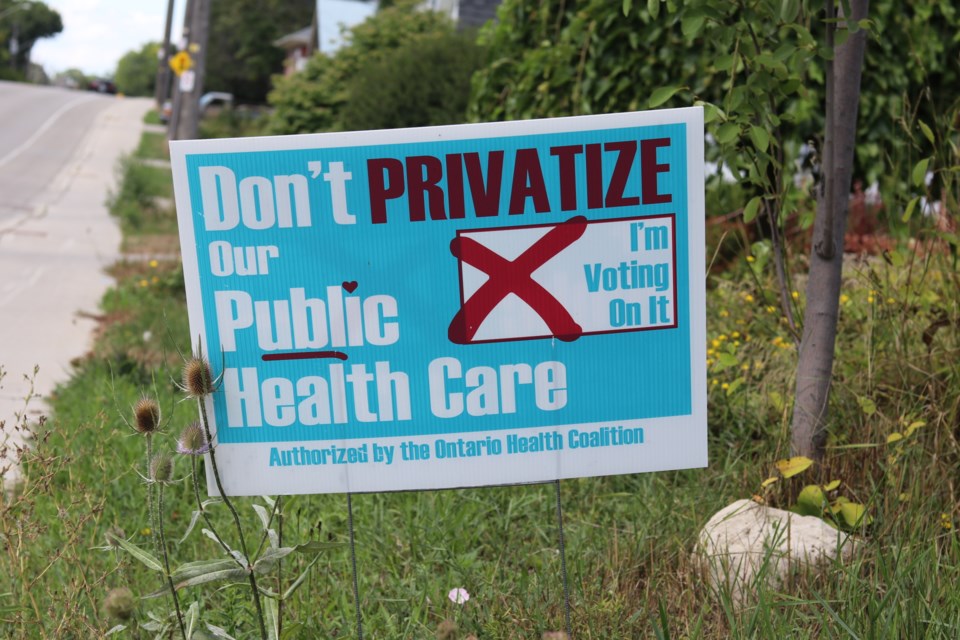After the provincial government hinted at increased health care privatization, Ontario residents and health care workers have been anxiously waiting to see what happens next.
In Guelph, privatization has slowly been filtering in since the early '90s, according to former chair of the Guelph Wellington chapter of the Ontario Health Coalition, Magee McGuire.
“I believe that the Ministry of Health has somehow forgotten the old health care system and its principles," she said, adding The Canada Health Act has become a commodity, because so much has been privatized over the years.
“I can only speak to Guelph, but I know that over the years, if you were a patient in the hospital and you were discharged, they certainly didn’t want to see you back in a week. They had help from a variety of clinics – heart clinics, diabetes clinics, the postpartum clinic for moms and babies, especially with breastfeeding help. There was a pain clinic. And they were all cut.”
Privatization already exists within the healthcare system, and that includes the type of care you receive at the previously publicly funded clinics, said McGuire.
However, according to the Ontario Health Coalition, there is no common measurable unit to calculate what percentage is currently public or private.
“Right now, I believe that the present government is either going to demand more money from the federal government, or they're going to privatize more.”
Last week the government brought forward a long-term care bill which would force hospital patients to move into the first LTC home that opens up or be charged up to $1,500 each day for staying in the hospital.
It's unclear if that will be on top of chronic care co-payments, which charge permanent residents of a hospital or other institution up to around $1,900 each month in user fees for services like food.
“It’s coercive,” said McGuire.
“When you're privatizing, you are dealing with doctors who are business-minded, away from the philosophy of the Canada Health Act. It's what has always guided good, patient-focused healthcare in Canada, and they're losing that.”
The Act was enacted in 1984, after Justice Emmett Hall warned that extra-billing and user fees – like co-payment fees – would create a two-tiered system that threatened the universal accessibility of care.
“Because if you privatize, it's only the people who have money that are going to be able to afford the kind of health care they want," said McGuire. "And there's going to be a huge deterioration in the health care of everybody else.”
While private elements have existed within the healthcare system for years, for instance, as hospitals employ laundry workers and food services, health care policy expert and University of Guelph professor Candace Johnson finds it concerning how close privatization is getting to “the core practice of medicine,” with more reliance on contracting private companies to bring in nurses.
“The other way that a system can be privatized would be to get people to pay more out of pocket, either a user fee, increased premiums, or more of a private insurance type model, which would be a complete departure from the system that we have now.”
Johnson said we need to maintain a single-payer system, where everybody gets equal care when they go to the hospital or the doctor.
“But likely what’s going to be the case, is that more private elements are introduced into the system, the greater the potential for inequality.”
As long as we keep that single-payer system, healthcare access will remain fair “to the best degree possible.”
“It’s a tough situation right now. Because of COVID-19, the system has been stretched so thin. But there is no evidence that increased privatization is going to help.
“The delivery of public health care needs to be distributed according to the principles of justice, distributed to people who are least able to pay, the most vulnerable, the sickest. The private sector isn’t set up to do a good job delivering on that,” Johnson said.
“There's no one side effect of privatization. There's only divisiveness, and the strongest are going to win,” McGuire said.
